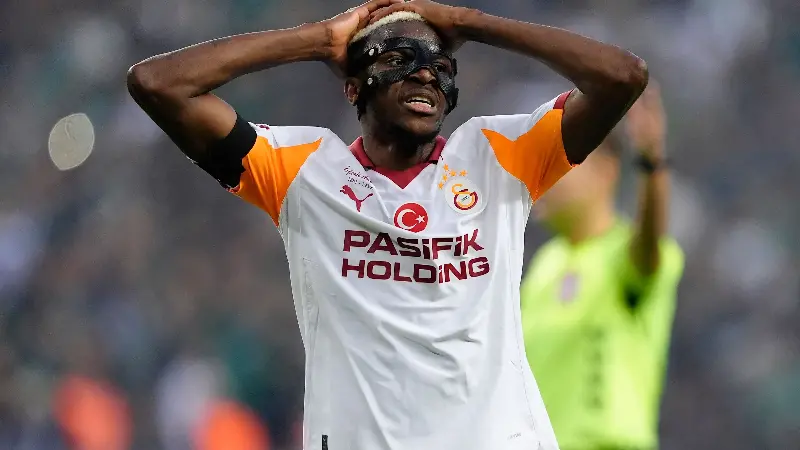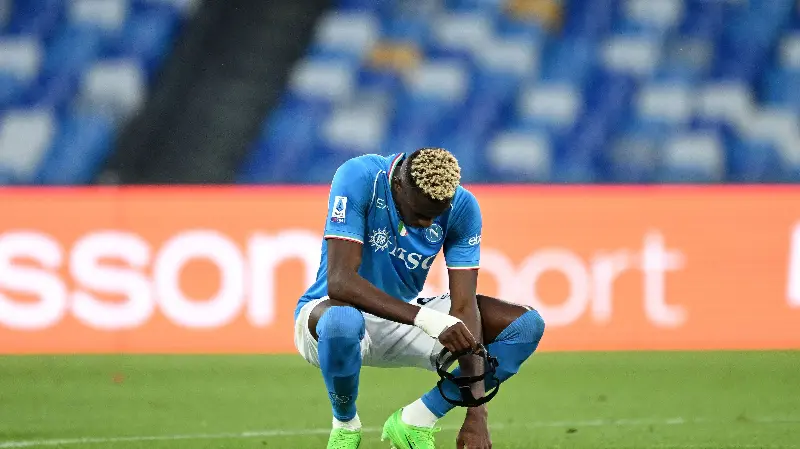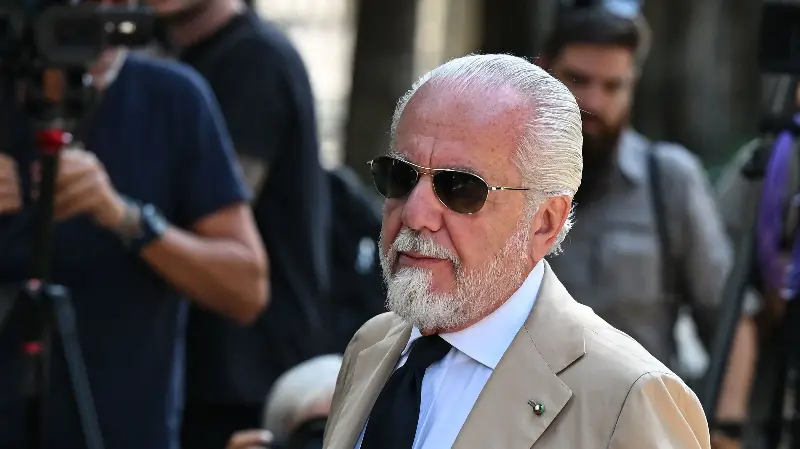
Fraud charges and accusations against Napoli president
Napoli were left in shock as president De Laurentiis was indicted by Rome’s preliminary hearing judge for alleged false accounting across the 2019, 2020 and 2021 financial years. Prosecutors claim the club artificially inflated capital gains in two major transfers, Manolas from Roma in 2019 and Osimhen from Lille in 2020 to strengthen Napoli’s financial position on paper.
The indictment also extends to CEO Andrea Chiavelli and the club itself, marking one of the most serious legal challenges in De Laurentiis’ 20-year tenure. According to the prosecution, Napoli booked “fictitious profits” through inflated player valuations, violating financial reporting rules. Napoli’s lawyers have fiercely contested the charges, calling the ruling “astonishing,” arguing that prosecutors misapplied accounting principles, and emphasising that “Napoli gained no financial advantage” from either deal.
The club issued a strong statement reinforcing their confidence, citing independent technical reports that confirmed the accuracy of their bookkeeping. They further stressed that a similar charge tied to the same investigative file was dismissed for Inter, an argument they believe strengthens their defence. Still, with the first courtroom hearing scheduled for December 2, 2026, the case marks the beginning of a long and high-stakes legal battle for Napoli’s hierarchy.
Oshimen opens up on fraud Napoli transfer in his secret testimony

The biggest focus of the investigation is the €76 million Osimhen deal of 2020, which included four Napoli youth players - Oreste Karnezis, Claudio Manzi, Ciro Palmieri and Luigi Liguori, valued collectively at nearly €20m. Italian investigators believe these valuations were artificially inflated to disguise capital gains, a technique similar to those that triggered major sanctions elsewhere in Serie A.
However, the legal scrutiny deepened further when Osimhen’s own leaked testimony to Italy’s Guardia di Finanza painted a troubling picture of how his transfer unfolded. The striker revealed that he never understood the contract he signed, describing a process in which he felt pressured, confused and emotionally overwhelmed as he navigated negotiations soon after his father’s death. He said he was pushed into meetings, told an agreement already existed, and even urged to fly to Naples the day after his father passed away, something he described as profoundly distressing.
Osimhen explained that he had never seen a contract draft, was handed only a “pseudo-agreement,” and claimed his then-agent prioritised the transfer over his personal situation. He admitted he wanted to return to France to escape the chaos and eventually cut ties with his agent before signing with new representatives. Despite the emotional backdrop, the transfer went ahead and became the catalyst for both his rise and his rift with Napoli.
Now, as prosecutors revisit the valuations and circumstances of his signing, the Osimhen deal stands at the heart of a scandal that stretches from financial irregularities to the player’s own claims of being pressured into the move.
Looking for smarter football bets? Get expert previews, data-driven predictions & winning insights with GOAL Tips on Telegram. Join our growing community now!
The Manolas transfer and the alleged false accounting
Manolas' 2019 move from Roma to Napoli is the second major transfer under scrutiny, and prosecutors view it as the starting point of the alleged pattern of fictitious capital gains. The Greek defender joined for roughly €36m, activating his release clause, while midfielder Amadou Diawara simultaneously moved from Napoli to Roma for around €21m. The combined structure allowed both clubs to register significant capital gains at a critical time-particularly Roma, who were racing to meet UEFA Financial Fair Play requirements before the fiscal deadline.
Napoli logged the Manolas acquisition at a value prosecutors now claim was inflated to improve the club’s financial presentation. The allegation is that the transaction did not reflect genuine market dynamics and instead served accounting interests. The situation became more suspicious in hindsight when Manolas was sold to Olympiacos in 2022 for only €2.5m, marking a dramatic drop in valuation and prompting investigators to question whether the initial fee had been artificially increased.
The core conflict revolves around whether the Manolas and Osimhen deals signal falsified accounting. Napoli's defence is clear as they contend that the transactions were completely legitimate, market-aligned, and fully audited.
The road ahead for Napoli

The indictment places Napoli in a precarious position both legally and competitively. The club faces a long wait before the trial, with proceedings set to begin in late 2026, leaving more than a year of uncertainty. While Serie A has recently dealt with financial irregularities, most notably Juventus' capital gains scandal, there is no immediate indication of point deductions or sporting sanctions for Napoli. Legal experts suggest such penalties would only emerge if prosecutors prove a systemic, long-term pattern of fraud.
